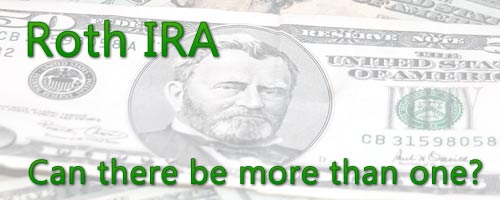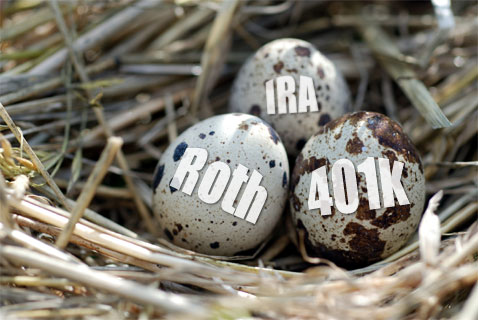If you serve in the military, you have the option to take advantage of early retirement. Service of 20 years or more makes you eligible to retire with a pension of 50% or more of your military pay.
Unfortunately, 50% of military pay most likely isn't going to yield enough money to retire and live the high life. But it does get you a step closer to your retirement goal. If you're wise, you'll supplement your military pension with various forms of investment income, such as income from a rental property and cash flow from your retirement savings.
For members of the military, a number of options exist for socking away extra cash for retirement, and one of your best options is your Roth IRA.
A Roth IRA has always been a good option for your retirement savings, but with passage of The Heroes Earned Retirement Opportunities Act (The HERO Act), your Roth IRA now comes with additional benefits. Below are three Roth IRA provisions which uniquely benefit military personnel:

1) Non-Taxable Combat Pay Contributions
Only certain types of income are eligible as the basis for making a Roth IRA contribution. As a general rule, if you don't have taxable earned income, you can NOT make a Roth IRA contribution.
For years, this restriction on Roth IRA contributions prohibited military personnel from contributing income earned in a tax-free combat zone. But recent changes to the law now allow military members with non-taxable combat pay to use those same funds as the basis for making a Roth IRA contribution.
As a result, it's now possible for those receiving non-taxable combat pay to avoid paying taxes on their money forever.
For example, suppose you're 30 years old, and you received non-taxable combat pay this year. You received that money tax-free. If you contribute it to your Roth IRA, it grows tax-free until the day you take it out. As long as you wait to reach age 59 ½ and you meet the requirements of the Roth IRA 5 year rule, you can then withdraw those funds tax-free as well – meaning you'll never have to pay taxes on those funds!
2) Penalty-Free Qualified Reservist Distributions
If you're a qualified reservist, you can withdraw funds from your Roth IRA early without having to pay the 10% early withdrawal penalty.
So who constitutes a qualified reservist? Any reservist ordered or called to active duty after September 11, 2001 who serves in any one of the following:
- Army National Guard
- Army Reserve
- Naval Reserve
- Marine Corps Reserve
- Air National Guard
- Air Force Reserve
- Coast Guard Reserve
- Reserve Corps of the Public Health Service
While you can always withdraw your original Roth IRA contributions tax-free and penalty-free at any time and under any circumstance, if you withdraw earnings (capital gains, interest, dividends, etc.) from your Roth IRA prior to reaching age 59 ½ and meeting the requirements of the 5 year rule, you'll likely owe income taxes and a 10% early withdrawal penalty on those withdrawn earnings.
But qualified reservists are exempt from the 10% early withdrawal penalty, meaning they can make early withdrawals of Roth IRA earnings and only be subject to income taxes.
3) Servicemembers' Group Life Insurance (SGLI) Contributions/Rollovers
If you or one of your family members receive a military death gratuity or a Servicemembers' Group Life Insurance (SGLI) payment resulting from a death or injury, you can rollover all or part of the amount you receive into your Roth IRA.
The rollover must occur before the end of the one-year period beginning on the date you received the payment, and the amount of money from your rollover can not exceed the total amount of money you received from the death gratuity or SGLI payment reduced by any amount you contributed to a Coverdell Education Savings Account (ESA) or another Roth IRA.
As an added bonus, any military death gratuity or SGLI payment you contribute to your Roth IRA is disregarded for purposes of the 1-year waiting period restriction on Roth IRA rollovers, so if you have an old 401k or Traditional IRA you want to rollover, you don't have to wait a year before doing so.
Conclusion
A Roth IRA is a powerful investment vehicle for building up your retirement savings. For members of the U.S. military, additional provisions within the law allow you to derive extra benefits from investing in your Roth IRA.
While a defined benefit military pension is a nice reward for your years of service, you don't want to be completely reliant on it during your retirement years. Diversification is good advice, and your Roth IRA is a great place to start.
This is a guest post from Britt at http://www.your-roth-ira.com, the Web’s #1 resource for Roth IRA information.

